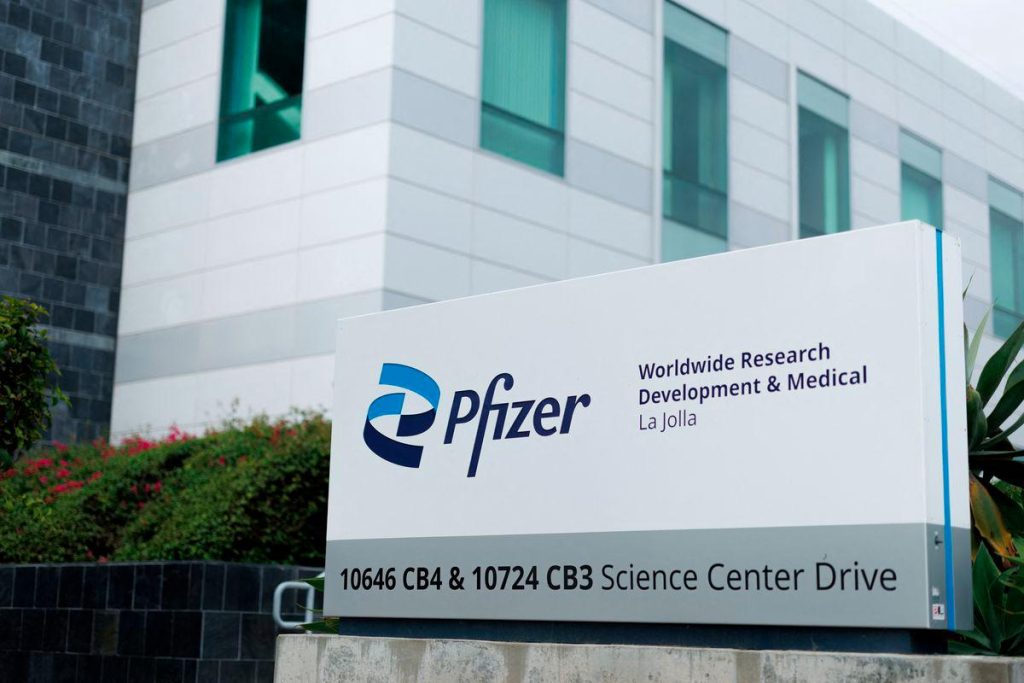Medicaid Drug Prices Set to Drop Following Pfizer Agreement with Trump Administration

Pfizer has reached an agreement with President Donald Trump concerning prescription drug prices. The U.S.-based pharmaceutical company agreed to reduce prices for medications under the Medicaid program to match what it charges in other developed countries. In exchange, Pfizer will receive relief from tariffs.
Trump also said Pfizer would offer that most-favoured-nation pricing on all new drugs launched in the U.S. and flagged that other drugmakers will follow suit.
Following the announcement, Pfizer’s shares rose more than 6%, while stocks of other major drugmakers including Eli Lilly, Merck, Amgen, AbbVie, and GSK also gained, as investors were relieved they might avoid the worst tariff impacts. European shares increased in early trading Wednesday.
U.S. patients currently pay significantly more for prescription medications—often nearly three times what patients pay in other wealthy countries—and Trump has been pressuring drugmakers to lower prices to comparable levels abroad.
Pfizer will be part of the White House’s new direct-to-consumer website for Americans to buy drugs, called TrumpRx, which is set to launch in 2026.
“The United States is done subsidising the healthcare of the rest of the world,”
Trump said, speaking at an event in the Oval Office accompanied by Pfizer CEO Albert Bourla, Health Secretary Robert F. Kennedy Jr., and others.
Several drugmakers have already set up direct-to-consumer pricing for some of their drugs, to be listed on a new website from the U.S. lobby group PhRMA, and have raised their prices in Britain to offset the price decreases in the U.S.
On September 25, Trump announced he would impose a 100% tariff on imports of branded or patented pharmaceutical products from October 1, unless a drugmaker is building a manufacturing plant in the U.S.
Pfizer is the first pharmaceutical company to announce a deal. In July, Trump sent letters to 17 leading drugmakers asking them to cut prices to match those paid overseas, requesting binding commitments by September 29.
Pfizer will invest $70 billion in research, development, and domestic manufacturing and has received a three-year grace period during which its products will not be subject to the pharmaceutical-targeted tariffs, “as long as, of course, we move the products here,” Bourla said.
Pfizer currently operates about nine manufacturing sites in the U.S. and 28 elsewhere globally, including in Ireland and Japan.
Pfizer’s competitors such as AstraZeneca and Eli Lilly have recently pledged to increase U.S. manufacturing capacity following tariff threats.
Pfizer stated that a large majority of its primary care treatments and some selected specialty brands will be offered at savings ranging up to 85% and averaging 50%. According to a poster displayed at the event, this includes rheumatoid arthritis drug Xeljanz, which carries a list price over $6,000 a month, migraine treatment Zavzpret, dermatitis drug Eucrisa, and post-menopausal osteoporosis medication Duavee.
Investors welcomed the price concessions because they apply only to Medicaid, said Daniel Barasa, portfolio manager at Gabelli Funds.
Barasa described the deal as “a highly favourable outcome for the industry. Given that Medicaid already benefits from substantial discounts and rebates – exceeding 80% in certain cases – the incremental impact on manufacturers is relatively minimal.”
New Medicaid prices will also take effect in 2026, a senior administration official said during a media call. The most-favoured-nation pricing is based on the lowest prices paid in eight other wealthy countries after fees and rebates.
More than 70 million people are covered by Medicaid, a state and federal program for low-income individuals. However, drug spending within Medicaid is much smaller compared to Medicare, which covers people aged 65 and older or those with disabilities and was not part of Tuesday’s announcement.
In 2021, Medicare’s drug spending reached $216 billion, while Medicaid’s gross spending was around $80 billion.
Anna Kaltenboeck, a health economist at Verdant Research, said if Pfizer and other companies provide supplemental rebates to Medicaid, it could be significant in supporting states struggling with specialty drug costs.
However, since Medicaid spends less on drugs compared to other payers, the overall impact would be less dramatic than if the reductions applied to Medicare.
